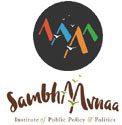
Background
The demonetisation move, announced on the 8th of November 2016, with the aim of wiping out black money has now become a lever to digitise of the economy. The government has gone into an overdrive promoting digital platforms like Aadhaar Enabled Money Transfers, Universal Payment Interface, USSD, PayTM and other digital wallets. This enthusiastic compelling of the citizens to change their financial and commercial activities overnight is riding on the claim that almost all Indians now have an Aadhaar/UID number and bank account linked to this number – the combination of which will facilitate India becoming a predominantly cashless economy. However, there is neither any policy document nor any specific legal framework that ensures that the fundamental rights of the citizens are not harmed in the process of, and after the achievement of this shift to digital. Unsurprisingly, evidences of people suffering due to this enforcement and preferential treatment of digital delivery of services – from ration to money – are widespread and growing.
This dream of Digital India, as articulated by the present government, was originally expressed and seeded during 2006-2009 with the enactment of the National e-Governance Plan and the establishment of the Unique Identification Authority of India and the National Payments Corporation of India. The roles and functions of these different plans, institutions, and actors that is shaping India’s digitisation at the current moment, however, remains generally unknown and undiscussed. On the other hand, how the steady and often inhumane push for digital delivery of public services is leading to widespread misery and preparing the ground for systematic disenfranchisement of the already marginalised remains widely undocumented and hidden. As the digital ‘revolution’ unfolds in India, there has been little contemplation or understanding of who is rolling the virtual ball, with what vested interests and most importantly, what would be the outcome of this for our economy, for the society and for our democracy as a whole – especially the most vulnerable. Now more than ever, we need to educate ourselves on the politics of mass digitisation in India.
About the Workshop
A 3 day workshop, ‘Digital Colonisation’ will provide an understanding of the making of the national digital ID system in India and its linkages and implications on one hand and the push towards cashless digital economy on the other with a focus on issues of constitutionality, governance, public accountability and the right to privacy.
The objective of the workshop will be to build perspective of participants on the following:
– How digitisation is being implemented in India through the UIDAI (Aadhar), Demonetisation, Jan-Dhan and other policy and legal measures
– Violations of constitutional rights, laws, ethics, and public accountability in these projects
– Linking the mass digitalisation programmes, privatisation of national interests and, the enhancing vulnerability of the Indian economy
– Discover options to resist the destruction of economic sovereignty and democracy rights in India
Who is the workshop for?
- Citizens/ Individuals: who want to understand the issue and its implications on their rights
- Activists, Campaigners: who have worked on the issue and would be interested in sharing their experiences
- Individuals associated with Social organisations working on transparency, governance, accountability issues – who want to be build an understanding to integrate these issues in their work
- Academic Researchers, Scholars, Journalists – who want to be build an understanding for their research and writing
Dates and Venue: 24th to 26th February 2017, Sambhaavnaa Institute
Contribution towards Programs Costs: We hope that participants would contribute an amount of Rs 3000/- towards workshop expenses. However, for those who cannot afford this amount please feel free to choose the partial contribution option in the application form.
Resource Persons: Usha Ramanathan, Law Researcher and Activist; Anupam Saraph, Symbiosis Institute for Computer Studies and Research, Sumandro Chattapadhyay, the Centre for Internet and Society.
Contact: For more information please call 889 422 7954 or email: programs@sambhaavnaa.org
Please fill the application form below:
